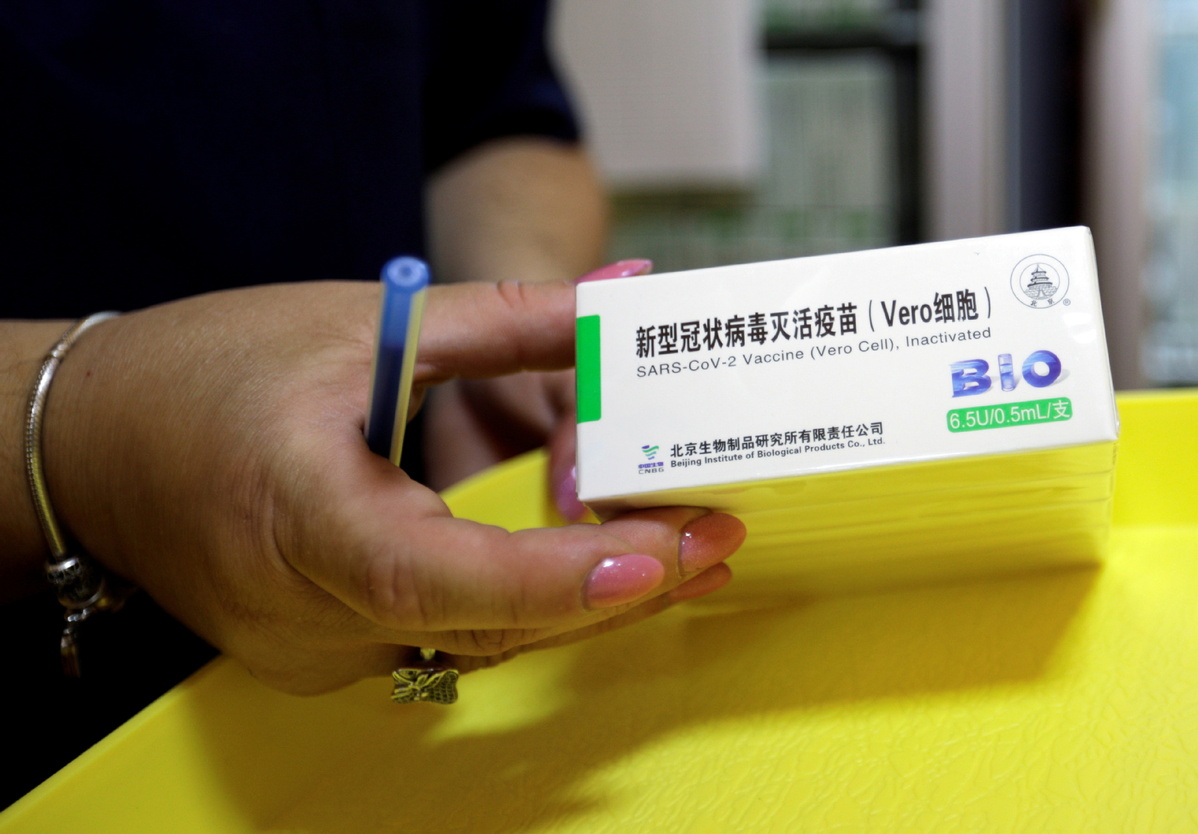WHO's Sinopharm approval a big win for global drive
By Adhere Cavince | China Daily Global | Updated: 2021-05-14 09:14

The World Health Organization has granted emergency use approval for the Chinese Sinopharm vaccine, paving the way for a more pronounced role by Beijing in vaccinating the world against COVID-19.
The approval makes China the only non-Western country to have received WHO backing for its vaccines, which affirms their quality, safety, efficacy and accessibility.
As WHO Director-General Tedros Adhanom Ghebreyesus declared, the approval expands the list of COVID-19 vaccines that COVAX, the mechanism created to pool the global vaccine effort and ensure fairer distribution, can buy.
The approval also gives countries the confidence to expedite their own regulatory approval, and to import and administer the Sinopharm vaccine. This is significant, given that China is a strong supporter of COVAX and has previously pledged to share its vaccines with developing countries as a global public good.
The approval of the first Chinese vaccine by the WHO is particularly significant for African countries, which currently face hurdles to gaining access to Western-produced vaccines. The continent has heavily relied on the India-produced Oxford-AstraZeneca vaccine, which accounts for more than 90 percent of the doses already supplied to the continent. Countries like Kenya got the first shipment of the vaccine to inoculate their most vulnerable groups. India has since suspended export of the commodity as it races to save its own people from the virus.
John Nkengasong, director of the Africa Centres for Disease Control and Prevention, has warned that India's pandemic situation could easily play out in Africa if the continent doesn't get the needed quantity of vaccines. Only 1.5 percent of Africa's population has so far been vaccinated with a first dose, compared with 35 percent in Europe and 52 percent in North America, according to the Our World in Data, a project of the Global Change Data Lab, a nonprofit organization based in the United Kingdom.
With 42 out of the 54 African countries relying on COVAX as the main source of vaccines, the approval of the Sinopharm vaccine now clears the way for China to supply the pledged 10 million doses to developing countries through COVAX.There is also room for additional purchases bilaterally and through multilateral avenues such as the African Union's vaccine task force.
As with other Chinese vaccines, the ease of storage of the Sinopharm vaccine makes it an ideal commodity for low-resource economies-a huge advantage compared with Western-produced vaccines that require complex refrigeration facilities, which are hard to come by in many parts of Africa.
Alongside the news of the Sinopharm vaccine's approval, Egypt announced that it will locally manufacture 2 million doses of the Chinese Sinovac vaccine and ramp up production to 40 million doses in the first year. Through such strategic partnerships, Africa can shorten the wait for local vaccine manufacturing and improve the prospects for a more sustained response to the pandemic.
Despite its own domestic need for vaccines, China has demonstrated great amity with other countries around the world in confronting the pandemic. Beijing has donated vaccines to over 80 countries in Africa, Asia, Latin America and Europe. In Africa, countries such as Algeria, Morocco, Tunisia, Egypt, Senegal, Guinea, Sierra Leone, Equatorial Guinea, Gabon, the Republic of Congo, Namibia, Zimbabwe and Mozambique have received donations of vaccines from China.
Even if COVAX were to optimally deliver on its promise to cover 20 percent of beneficiary country population, that would not be enough to jump-start herd immunity. To make up for the difference, African countries will have to purchase an extra 1 billion doses to cover 60 percent of the population.
The addition of Chinese vaccines to the WHO vault means that developing countries now have more options that have received the mark of quality from the world health watchdog.
Chinese vaccines have another advantage relating to safety. Despite fears and concerns that have led to Western governments halting administration of some European-or United States-produced vaccines, such concerns have not been raised with Chinese vaccine candidates.
China should now be ready to ramp up production of the Sinopharm as well as other vaccines to meet the demand, which is sure to accelerate.
The writer is a scholar of international relations with a focus on Africa-China relations. The views do not necessarily reflect those of China Daily.
























